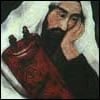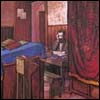The Midrash relates that when Moses was on the mountain for 40 days and nights, he did not actually experience day and night. Yet he knew it was day when he was taught the Written Torah and that it was night when he was taught the Oral Torah.1
Based on this Midrash, many communities have the custom of refraining from learning “Mikra” (Scripture) at night.2
The Kabbalists were especially careful about this. As Rabbi Yitzchak Luria, known as the Arizal, explained, the Written Torah corresponds with the attribute of din (divine judgment and severity) and the Oral Torah with the attribute of chessed (kindness and benevolence). Since nighttime itself is already a time of din, one should avoid adding to it, and instead learn the Oral Torah as a way to “sweeten the din.”3 We are even told that reading Mikra at night can be spiritually dangerous.4
Now, this is a widely accepted custom, but it is not law. As such, some authorities rule that if one only knows Mikra, one should learn that rather than learning nothing at all.5
When Does “Night” Start and End?
There is discussion about whether “nighttime” (for purposes of this custom) begins at sunset or nightfall. In fact, the Book of Chabad Customs states that the custom is to refrain from learning Mikra at nightfall,6 which the Rebbe confirms in some of his letters.7 However, in other instances the Rebbe writes that the custom is to stop learning Mikra at sunset.8 So, ideally, you should try to refrain from sunset, but if you haven't finished your daily study for that day, you can continue until nightfall.9
While some communities have the custom of refraining from Mikra all night, many, including Chabad, only refrain from Mikra until chatzot (halachic midnight).10
What’s Included in Mikra?
Mikra generally includes Torah (Pentateuch) Nevi'im (Prophets) and Ketuvim (Writings).
Some commentators are of the opinion that you should refrain from Mikra at night only if you are reading or learning the actual Hebrew text, but not if you are merely reading a translation.11
The Rebbe writes that there is no concern when studying Torah with Rashi’s commentary, as it is considered to be Oral Torah.12
Psalms
While some are of the opinion that Psalms is not included in this custom,13 many (including Chabad14 ) are of the opinion that it is, and therefore generally refrain from reciting Psalms at night.15 As such, the Rebbe writes that you should either say the daily portion of Psalms during the day or after chatzot.16
When praying for one who is critically ill (choleh sheyesh bo sakana), many have the custom to say Psalms even at night.
There is also grounds for leniency regarding saying Psalms in the presence of a minyan.17
Special Nights
Many are of the opinion that Shabbat night is not included in the above custom and one is permitted to recite Psalms Friday night.18
Chabad's custom is to recite Psalms at night on Rosh Hashanah, Aseret Yemei Teshuva, Yom Kippur, and Hoshana Raba.19
There are opinions that one can read the weekly Torah portion with Targum on Thursday night,20 as the spiritual light of Shabbat is already glimmering.21







Join the Discussion